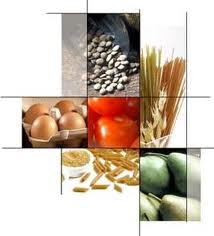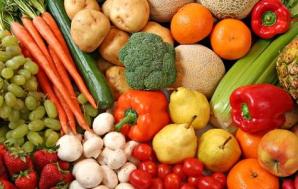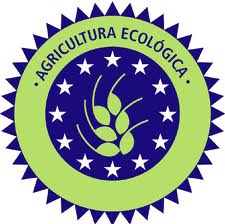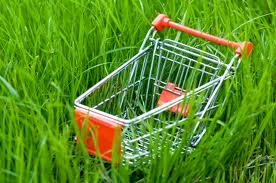IF WE ARE WHAT WE EAT, ARE NOT WE CLOSER TO “NATURE” IF WE INCORPORATE NATURAL AND ORGANIC FOODS INTO OUR DIET?
The “organic” label is one of the more recent vintage and is the product of its own countercultural revolution. Its prominence in grocery store aisles reflects a cultural repulsion against factory farms and their reliance on chemical, biological and other industrial solutions to the myriad challenges posed by growing crops and raising animals for safe human consumption.
Two of the most symbolic words in food promotion nowadays are “organic” and “natural.” Generally defined, “natural” means “present in or produced by nature” and is not something “altered, treated or disguised,” but rather “faithfully represents nature or life.” “Organic,” in its most abstract sense, means “simple, healthful, and close to nature.”
Organic products they are rare even among Spanish consumers. However, Spain is the second European country as a producer of organic food, almost 80% is exported to other countries. The reasons cited by citizens for not buying these products are unknown (33.3%), difficult to find in the market (31.3%) or the highest price (28.1%), which sometimes reaches overcome the traditional foods of 100%, especially fruits and vegetables.
What is ecological farming?
Organic farming also known as biological or organic, is a way to cultivate and care for the land and raising cattle respectfully with nature, without the use of toxic chemicals (fertilizers, pesticides, herbicides, so on). Seeded modified genetically (called GM or GMO) without forcing fertility cycles or animal feed. Its purpose is to get healthy food for all, at its maturity, with all the flavor, aroma, texture, with all the vitality and all the benefits of healthy food.
Besides, these foods offer many advantages over traditional reasons to opt for them.
Why eat ecological food?
Because they are healthy and safe for the body and have all the nutrients and vitamins own food.
Come from organic farming, that by not using toxic chemicals helps protect our health and care of the farmers and the environment.
Because plant or animal ingredients have not been genetically modified. Organic farming takes account of traditional agricultural knowledge while knowledge is up to date and cutting edge techniques to keep improving in all aspects, but not away from life or nature, and is managed with strict quality standards.
Because they come from an agriculture that preserves and enhances biodiversity by encouraging the planting of hedges and trees, to remove chemicals that affect wildlife and the entire food chain by diversifying crops, conserve indigenous seeds.
Organic farming is also a commitment by the farmer and the farmer to look after the land, woodland and water, to enable the animals to develop their innate behavior and are at all times in a position of comfort, to respect their cycles and needs.
Because they come from an agriculture that promotes work and country life preserving its own culture and contributes to satisfaction, health and culture of living in the city. While maintaining the diversity of the landscape with its beauty and harmony, helping to create jobs by requiring more labor and reduce agricultural surpluses with promoting quality rather than quantity.
Because organic food to take contribute to responsible consumption. A consumer of organic products know that organic farming contributes to rural development to better use of resources and a brake erosion and fires, a survival of the caring professions field then enjoyed by all; a fair prices for farmers.
Buy organic food, it is, food from the agriculture and livestock, is to support farmers to do their work gladly, watching the economic and social development of our peoples.
Because organic farming helps us recover the flavors almost lost, eating nice food gastronomic culture we know and we like for its aroma, its flavor.
Ultimately for their good quality.
How can we identify an ecological food?
All packaged products are obtained according to the rules of organic farming with its labeling are: “Organic farming” (in Castilian or in any of the languages of the European Union) and a logo or seal indicating authority or body control which certifies that this is so. If the product is produced and packaged in the EU can carry the logo European Organic and Biological.
If the product is fresh and not packaged (fruits, vegetables), make sure that the producer is enrolled in a watchdog and has a certificate of organic farming and production control.
Nowadays, it is demanded definite values which are linked to differential products, among the quality, safety, health, sustainability, so on. Food is a social and cultural fact as well as biological. Therefore, we do not only ingest nutrients, but also symbols. Through this act, we build an important part of our individual and social identity.
It is an interest for the traditional, the authentic, the craftsman, natural, products our land.
To sum up, organic foods have become part of daily food consumption thanks to its distinction, health, safety, nature, tradition, so on.
A dynamic that relies on new consumer trends in post-industrial societies, eager to find in nature the lost sensations by the advance of modernization and connecting with new marketing strategies that aim to consolidate “the local “as a brand or seal of quality and differentiation.
Organic production allows farmers and rural agro-industries to acquire a small space of autonomy from corporate power, in an increasingly competitive environment.
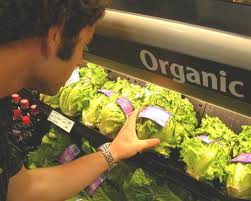
This strategy allows us to analyze the interaction between the local and the global, between tradition and innovation, and between the legacy of the past and the future bet. It goes without saying that the world echoing lets you discover a mosaic of men and women who work our land with a deep respect for the environment, animal welfare and food quality, healthier and they do these days with a optimistic mood, because we know that we are a small gift will be the great future buts. It is ultimately a way of raising awareness about organic food and highlight the quality and richness of our land.
REFERENCES:
– AGUILAR CRIADO, E. (2007), Productos locales, mercados globales. Nuevas estrategias de desarrollo en el mundo rural, en García Docampo, M. (ed.), Perspectivas Teóricas en Desarrollo Local. La Coruña: Netbiblo, pp. 147-169.
– ALONSO BENITO, L. E. (2004). “Las políticas del consumo: transformaciones en el proceso de trabajo y fragmentación de los estilos de vida”, en RES. Revista Española de Sociología, nº 4, pp. 7-50.
– ALONSO BENITO, L. E. (2002). “¿Un nuevo consumidor?”, en Abaco: Revista de cultura y ciencias sociales, nº 31, pp. 11-18.
– BESIÈRE, J. (1998), “Local Development and Heritage: Traditional Food and Cuisine as Tourist Attractions in Rural Areas”, en Sociologia Ruralis, nº 38 (1), pp. 21-34.
– BRUGAROLAS, M.; RIVERA, L. M. y SÁNCHEZ, M. (1997). “Potencial de mercado para nuevos productos alimentarios: la producción ecológica.” Investigaciones europeas de dirección y economía de la empresa, nº 3(1), pp. 61-76.
– CALOMARDE BURGALETA, J. V. (2000). “Marketing ecológico”. Madrid: Ed. Pirámide y Esic Editorial.
– CÁCERES, J. y ESPEITX, E. (2002), “Riesgo alimentario y consumo: percepción social de la seguridad alimentaria”, en Gracia (Coord), Somos lo que comemos. Estudios de alimentación y cultura en España. Barcelona: Ariel, pp.317-348.
– CÁCERES, F.; CRUZ, J. C.; RODRÍGUEZ, A.y RUBIO, L. A. (2004). “Calidad agroalimentaria y denominaciones de origen.” Cuadernos de la Tierra del Agricultor y Ganadero, Nº 3, PP. 6-16.
– DÍAZ MÉNDEZ, C. y GÓMEZ BENITO, C. (2001). “Del consumo alimentario a la sociología de la alimentación”, EN Distribución y Consumo, Nº 60, PP. 5-23.
– GONZÁLEZ RUIZ, L.y COBO QUESADA, F. B. (2000). “Agricultura Ecológica en España: las estrategias de marketing, claves para el éxito”, en Distribución y Consumo, nº51, pp.39-55.
– HERVIEU, B. (1997). Los campos del futuro, Madrid: Ministerio de Agricultura, Pesca y Alimentación.
– LOZANO CABEDO, CARMEN (2007), “La agricultura ecológica en el nuevo modelo de ruralidad. Una aproximación desde la Sierra de Segura (Jaén)”, en Neira, X.; Cervera, A. y Simón, X., Agroecoloxía e Agricultura Ecolóxica en Galiza. Catarroja (Valencia): SEAE, pp.91-99
– MURDOCH, J. y MIELE, M. (1999). “‘Back to Nature’: Changing ‘Worlds of Production’ in the Food Sector.” Sociologia Ruralis, 39(4), 465-483.
– NYGARD, B.y STORSTAD, O. (1998). “De-globalization of Food Markets? Consumer Perceptions of Safe Food: The Case of Norway.” Sociologia Ruralis, 38(1), 35-53.
– RENARD, M.-C. (1999). “The Interstices of Globalization: The Example of Fair Coffee.” Sociologia Ruralis, 39(4), 484-500.
– WILLER, H.;SORENSEN, N.y YUSSEFI-MENZLER, M. (2008). “The World of Organic Agriculture. Statistics and Emerging Trends 2008.
Filed under: Blogs and forums, English Language, Uncategorized, Web Communication
![]()
